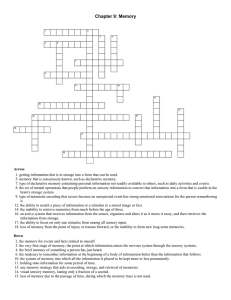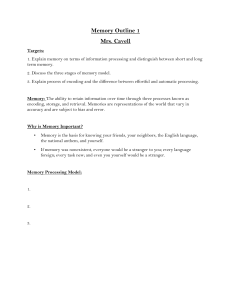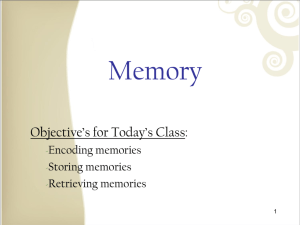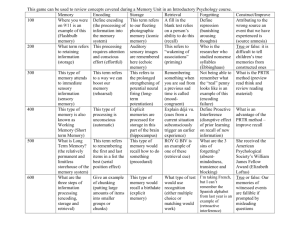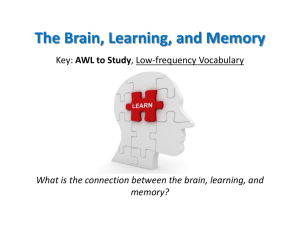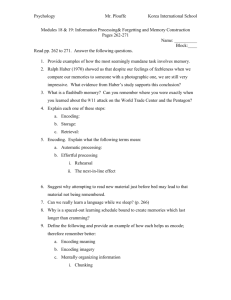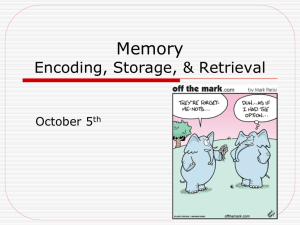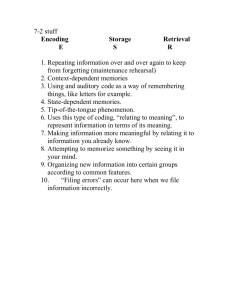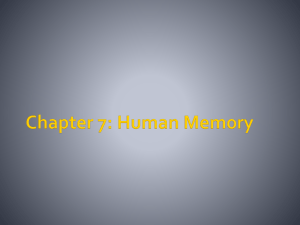Memory: Encoding, Storing, Retrieving
advertisement
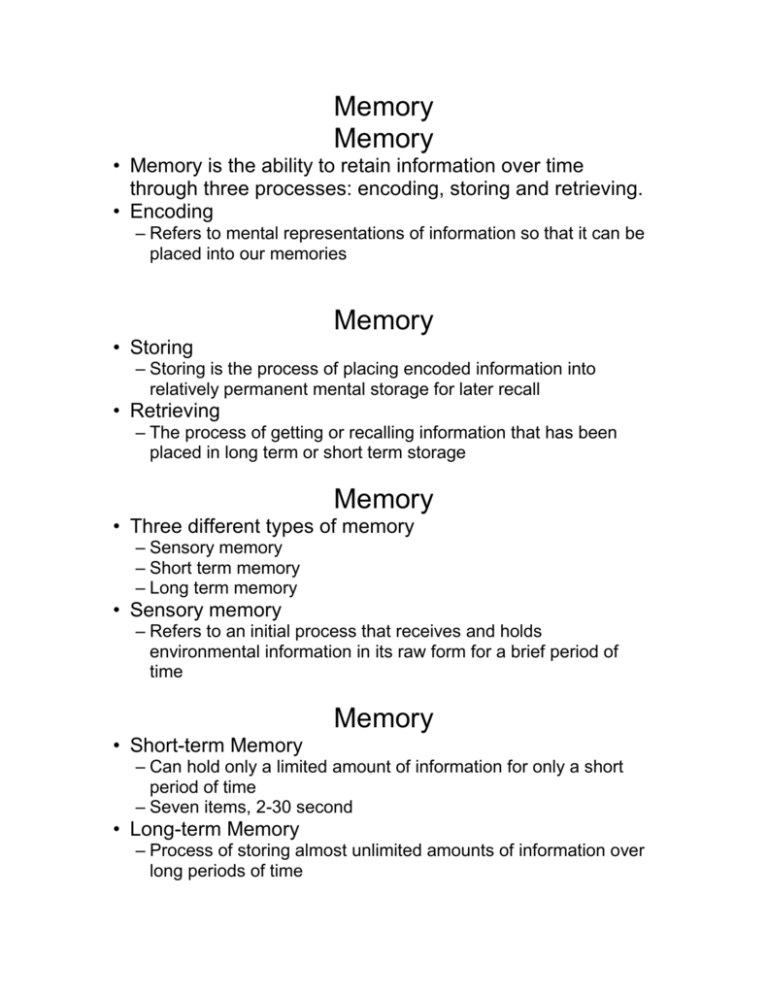
Memory Memory • Memory is the ability to retain information over time through three processes: encoding, storing and retrieving. • Encoding – Refers to mental representations of information so that it can be placed into our memories Memory • Storing – Storing is the process of placing encoded information into relatively permanent mental storage for later recall • Retrieving – The process of getting or recalling information that has been placed in long term or short term storage Memory • Three different types of memory – Sensory memory – Short term memory – Long term memory • Sensory memory – Refers to an initial process that receives and holds environmental information in its raw form for a brief period of time Memory • Short-term Memory – Can hold only a limited amount of information for only a short period of time – Seven items, 2-30 second • Long-term Memory – Process of storing almost unlimited amounts of information over long periods of time Memory • Memory Process- graph • Sensory memory- must pay attention or else memory is forgotten – If you do pay attention it moves on to short term memory • Once in short term memory, items must be encoded or else they will be forgotten within 30 seconds – If you do encode the information it moves onto long term memory, where it will stay for a relatively permanent basis Sensory Memory • Iconic memory – A form of sensory memory that automatically holds visual information for about a quarter of a second or more; as soon as you shift your attention, the information disappears • Echoic memory – Holds auditory information for 1-2 seconds Short-term Memory • Two main features of short term memory • Limited duration – Items only stay for 2-30 seconds – Maintenance rehearsal- intentionally rehearsing or repeating information so that it remains in short term memory • Limited Capacity – Generally only seven items remain in short term memory – Chunking Long-Term Memory • Unlimited capacity to store information – May not always be able to retrieve the memory • Declarative memory- memories for facts or events, such as stories, conversations, daily events – We are aware that we are recalling – Semantic and episodic Long-Term Memory • Procedural or non-declarative memory – Memories for motor skills, some cognitive skills, and emotional behaviors – We can not recall or retrieve these memories Encoding • Acquiring information or storing information in memory by changing this information into neural or memory codes • Automatic encoding – Transfer of information without any effort and usually without any awareness • Effortful encoding – Transfer of information either by working hard to repeat or rehearse or by making associations between new and old information
